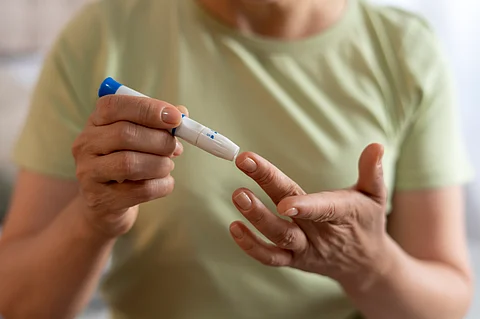

In 2019, one in every five people aged over 45 years in India was living with diabetes, with prevalence in urban areas nearly double that of rural regions, according to a study published in The Lancet Global Health. The research also revealed that nearly 40% of individuals with diabetes were unaware of their condition.
Titled “Prevalence, awareness, treatment, and control of diabetes in India: a nationally representative survey of adults aged 45 years and older”, the study defined diabetes prevalence as either self-reported previous diagnosis or having an HbA1c level of 6.5% or higher. HbA1c is a blood test that reflects average blood sugar levels over the past two to three months.
The study found that in 2019, diabetes affected 19.8% of adults aged 45 and older—about 50.4 million individuals. Among these, 46% had regained control of their blood sugar levels, 59% achieved blood pressure control, and only 6% were on lipid-lowering medication to reduce cardiovascular risk. The research did not differentiate between type 1 and type 2 diabetes.
Globally, diabetes prevalence has quadrupled between 1980 and 2014, making it a major public health challenge. India alone accounts for roughly one in every seven adults with diabetes worldwide.
The findings are based on the Union government’s Longitudinal Aging Study in India (LASI), which surveyed nearly 60,000 adults aged 45 years or older and their spouses from 2017 to 2019 across 36 states and union territories. The data included HbA1c measurements and details on household economic status and body mass index (BMI).
Results showed that urban diabetes prevalence (30%) was about twice that of rural areas (15%). Higher prevalence was observed in regions with greater economic development, at 24.7% among overweight individuals and 34.6% among those with obesity. Rates were similar for men (19.6%) and women (20.1%).
The authors noted that timely data on diabetes prevalence, awareness, treatment, and control is essential for designing effective prevention and management strategies. The World Health Organization’s Global Diabetes Compact aims that by 2030, at least 80% of people with diabetes are diagnosed, and among them, 80% achieve blood sugar and blood pressure targets, with 60% on statin therapy.
The study underscores the urgent need to strengthen public health measures to prevent, detect, and manage diabetes in India’s ageing population.